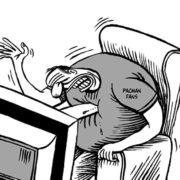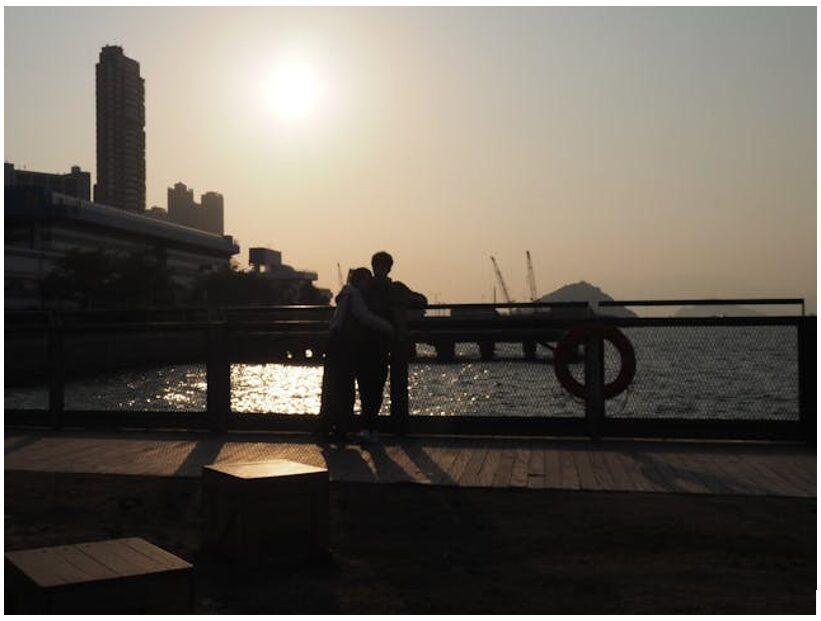NO one would blame Filipino boxing superstar Manny Pacquiao if he suddenly decides to call it a career and walk away from the ring for good after being knocked out by Juan Manuel Marquez in their fourth meeting last Saturday, December 8.
At 33, (turning 34 on Dec. 17), Pacquiao is considered an “old” boxer.
He’s fought 61 times, racking up a 54-5-2 record. After winning 15 in a row since 2005, he’s lost his last two bouts and this latest one, coming against his arch-nemesis, may serve as a wake up call for those close to Pacquiao.
Some fans and those close to the Filipino boxing superstar are pleading with him to retire.
Marquez’s thunderous blow landed flush, not only on Pacquiao’s head, but also through the hearts and minds of all Filipinos and Pacquiao fans.
Just watching wife Jinkee Pacquiao’s reaction should wake anybody up on how brutal this sport can be for family members.
A few hours after the defeat, walking around the MGM Grand, you could see it in their faces.
There was a haze — an uneasiness in the faces of Filipinos, who once cheered for their champion after each victory for more than five years. The chants of “Manny, Manny” were gone and replaced by cheering Mexicans for “Marquez, Marquez.”
The scene was a clear dichotomy: while Mexicans and Marquez fans cheered inside the casino, Pacquiao fans looked like they were inside a funeral home.
There was no cheering for them that night. Their champion had fallen, his future unsure.
It’s the hardest thing any world-class athlete can do: retire.
We’ve seen basketball star Michael Jordan retire (twice) and come back.
Magic Johnson was forced into retirement, after testing positive for HIV. But he came back as well. Baseball pitcher Roger Clemens, football quarterback Brett Favre, even cyclist Lance Armstrong have announced retirement and came back to their sport.
Boxing is no different. Oscar De La Hoya, Floyd Mayweather Jr., George Foreman, Muhammed Ali, Sugar Ray Leonard, and Evander Holyfield, are among the names of many great champions who have called it quits, only to be seen back in the ring, a year or two later.
But one name pops up (and this is why we believe the 33-year-old Pacquiao shouldn’t retire):Ricky Hatton.
After Pacquiao knocked out Hatton in the second round of their bout in 2009, the former British champion and superstar fell into a funk.
His life fell apart. He fell into a deep depression. Drugs and alcohol became his friends. There were many times he put a knife on his wrist, ready to end it all.
That is, until he decided to make a comeback. Boxing was his therapy. It was the only thing he knew in his life. Training served as a coping mechanism, forcing him to get back into shape.
This is not to say that if Pacquiao retires, his fate would be similar to that of Hatton’s. It is difficult for world-class athletes like Pacquiao (barring permanent/serious injury) to be forced into retirement, when they believe they can still perform at a high level.
Pacquiao was winning that bout against Marquez before being knocked out. He has already stated that he’s ready to continue his career and that he’s aiming for a fifth fight against the Mexican.
Retirement would just be premature.
Yes, Pacquiao has nothing to prove. His legacy as the second man ever to have eight-division world championships and the best fighter ever to come out of Asia has been set in stone. He’s financially well-off. He’ll easily be re-elected in Philippine Congress next year.
Aside from his congressional gig, he could make a living serving as an ad man, pitching products in the Philippines or the US.
But after a 17-year career, Pacquiao deserves to make his own decision regarding his career. Only Pacquiao knows when to call it quits.
Knowing Pacquiao and having covered him for a long time, he’ll rise through this adversity — and he will continue to give Filipinos hope and inspiration.
(AJPress)







